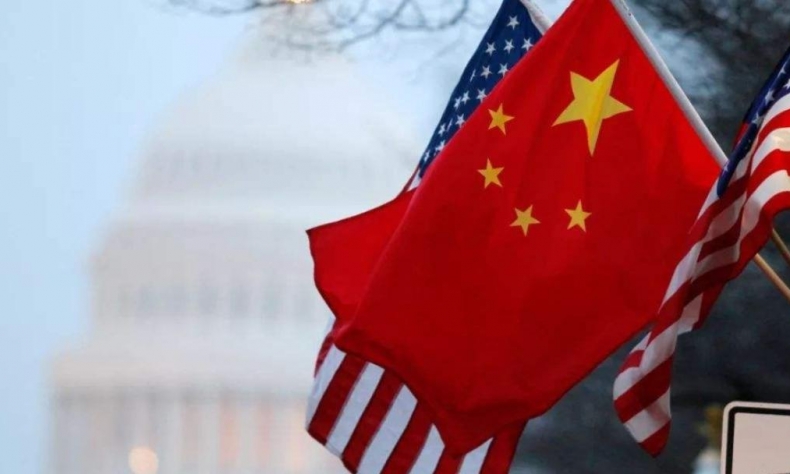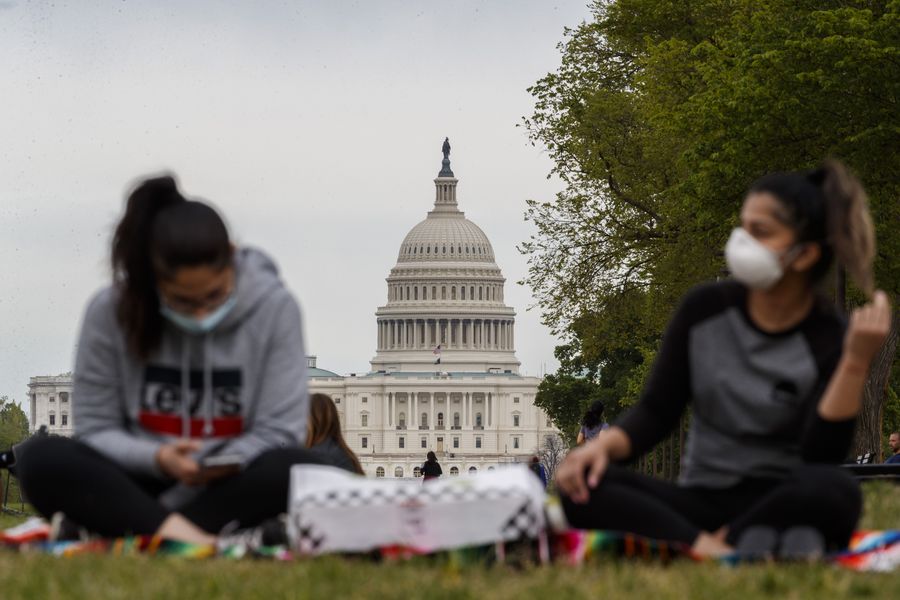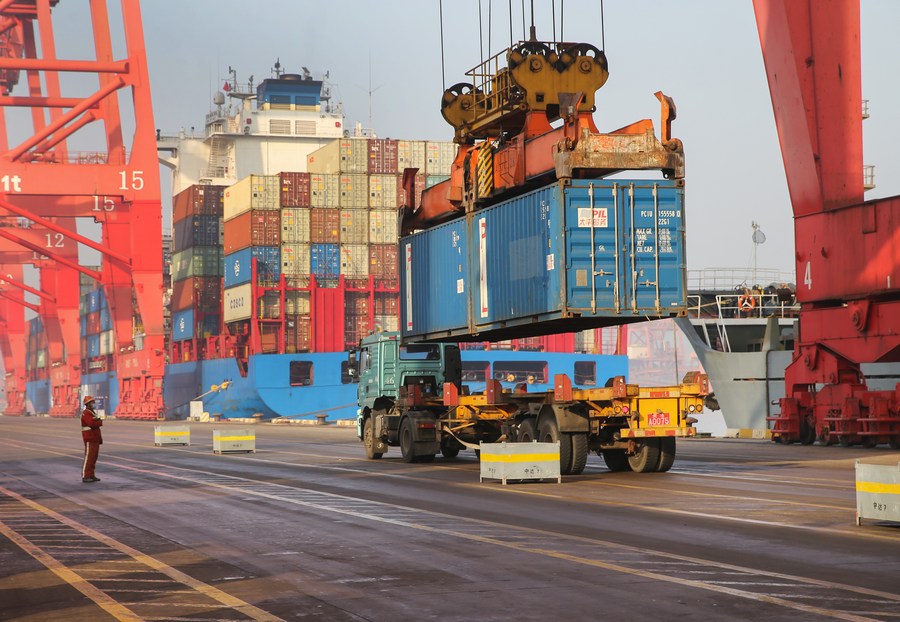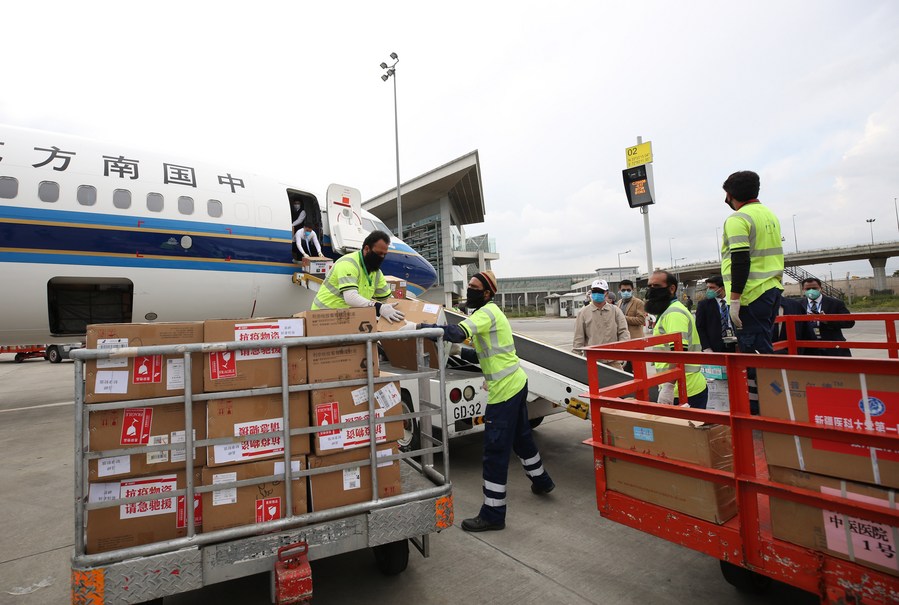Is an Ideological Clash a Self-Fulfilling Prophecy?

The much hyped ideological clash is nothing but a convenient propaganda tool in America’s toolbox to further alienate China from the world.
Amid the repeated recurrence of the COVID-19 contagion across the globe, prospects for forging coordinated and coherent multilateral cooperation remain abysmal. While the blame game over the virus origin still rages on, a new dimension of schism along ideological seams is becoming increasingly pronounced. Jingoistic drum beats accompanying abrasive geopolitical rhetoric have been gaining traction on the world stage at the expense of international cooperation.
Is a face-off unevitable?
Having inherited the Trumpian legacy to a large extent, notably his anti-China stance, the Joe Biden administration did not mince words in portraying the world’s second largest economy as its worst adversary and the competition as the fight between liberal democracy and authoritarianism. The ensuing global onslaught of diabolical vilification against China by Washington and the Western media has been incessant and well-coordinated, far beyond the limits of diplomatic decency.
For example, the U.S. intelligence agency released the main points of the so-called New Coronavirus Traceability Investigation Report on August 27, which did not rule out either natural exposure or a laboratory accident as the origin of the virus. The report also made false accusations against China for obstructing international investigations, refusing to share information and accusing other countries.
The collective plea for bilateral cooperation by scholars, thinkers and former diplomats from both sides has unfortunately fallen on deaf ears in Washington. China-bashing is now one of the few bipartisan agreements across the aisle on the Capitol. Beijing has seemingly morphed from a mere bogeyman to a real threat that deserves coordinated efforts to contain.
The current mainstream geopolitical rhetoric in the West is reminiscent of the bipolar thinking that asserts there are only two contrasting, mutually exclusive ideologies in the world. An almost messianic belief that the U.S. is the one exceptional, essential nation destined to lead from the moral high-ground of liberal democracy has taken hold. The superpower is consumed with an idealized notion of itself as standing alone against the bulwark of any deviation from the “universally accepted” logic of the Washington consensus.
Washington can ill-afford to have its primacy as the unipolar power eclipsed, much less surpassed by challenger defying the so-called “rules-based international order” dictated by the U.S.

Obsessional paranoia
Given this dysfunctional psyche, it is no surprise that tariff and non-tariff sanctions designed to stymie the rise of China are rolled out in the name of national security. This obsession with China has shaped their entire geopolitical strategy as well as the domestic policies of the U.S.
On the Capitol, even a funding package to shore up the nation’s crumbling infrastructure uses the justification of countering the Chinese challenge to seek bipartisan endorsement. Similarly, legislation to beef up the preponderance of American technology, science and research in the face of Chinese competition needs to conjure the same spectre to garner bipartisan support.
Could this dangerous trajectory ultimately force the relationship into the Thucydides Trap? Or can it be headed off with cooler heads prevailing on both sides? This is a real test of the leadership wisdom in the 21st century. While acknowledging competition or even rivalry the global community has so far exercised great restraint in containing and de-escalating the risk of rivalry turning into conflict.
Indeed the peace dividend reaped by the international community in the past seven decades, to a large extent, are attributable to the wisdom of the post-World War II political leaders bringing such rule-based institutions as the United Nations into fruition-albeit not without flaws.
Such dominance has been accommodated somewhat grudgingly with tacit global approval far from tantamount to granting the U.S. carte blanche in stifling other nations’ rights. The values of meritocracy and a level playing field espoused in the West are practised very selectively across the broad spectrum of human cultures.
Nowhere in the current world order is a purely homogeneous model of global governance dictated solely characterized by Western democracy-deemed plutocracy in certain quarters. After all, no single ideology has ever met the myriad of demands across the political spectrum.

Managed competition
Although competition and geopolitical rivalry seem inevitable, particularly when they are put to the tests in crisis management, determining the model of national governance lies in the hands of its people and cannot be dictated by the whims of a foreign power. All overt and covert efforts by any regime or nation to undermine another nation of different polity, ideology, civilization or model of governance is a breach of the existing international order and in defiance of global norms of accommodating diversity.
Indeed there should be room for competition. And the protagonists should have the courage and confidence to engage in fair competition, without jeopardizing peace. In short, a managed competition is obviously preferable to confrontation.
In the throes of unabated pandemic, human lives continue to perish wastefully day by day in the “Free World.” Notably in the U.S., the self-proclaimed bulwark of democracy, mandatory mask-wearing and city lockdowns remain fiercely contested. No amount of hawkish bombast and scapegoating of China during the 2020 presidential election campaign and thereafter can concealed the world’s highest COVID-19 morbidity and mortality statistics.
Be that as it may, China remained steadfast in dispatching teams of medical personnel alongside plane loads of Personal Protective Equipment (PPEs) to other needy countries, well before the contagion was brought under full control on its own soil. Saving lives matters, this goes beyond geopolitical interests and ideological disparity in the Chinese perspective, despite unkind scorn from the West. It simply emphasized China’s commitment to inclusive, multilateral cooperation in times of global need, starkly contrasting the geopolitical rhetoric and media spin stigmatizing China by the US.

Who stoked the potential clash?
China’s pursuit of forging a community with a shared future has been matched with actions. However, under the prejudicial lenses of ideological disparity, China’s good deeds are subjected to predetermined microscopic scrutiny. For example, China’s generous sharing of a successful model of containing and tracking the virus was vilified as a Trojan Horse intended to export authoritarianism. Success stories of the Chinese model of governance cannot be tolerated in Western optics.
The spectre of an ideological face-off is being resurrected from the tomb of the Cold War and a new form of McCarthyism looming in the wings among U.S. allies. The U.S.-led West has spared no effort in trying to make China a pariah state. From the perspective of the U.S., its relationship with China is viewed as competitive, when it should be collaborative.
Obviously, collaboration will only be on the table when it suits Washington’s interests. Against the backdrop of American exceptionalism and condescendence of others, any call for inclusive collaboration is wishful rhetoric. It is no surprise that Beijing’s restraint in averting a head-on collision with Washington has so far gone unnoticed. The danger of taking the rivalry to the extreme of a zero-sum conflict remains increasingly possible as bilateral hostility increases.
All in all, the much hyped ideological clash is nothing but a convenient propaganda tool in America’s toolbox to further alienate China from the world. Understandably, the task of forging a global community with a shared future is unlikely to have a smooth path. The path will remain challenging if the spectre of Manifest Destiny remains the driving force motivating the reigning hegemon making an ideological clash a self-fulfilling prophecy. Perhaps it will take another global existential crisis to drive the international community to the multilateral cooperation needed to face the existential threats that exist.
Ong Tee Keat is chairman of the Center for New Inclusive Asia.
 Facebook
Facebook
 Twitter
Twitter
 Linkedin
Linkedin
 Google +
Google +










